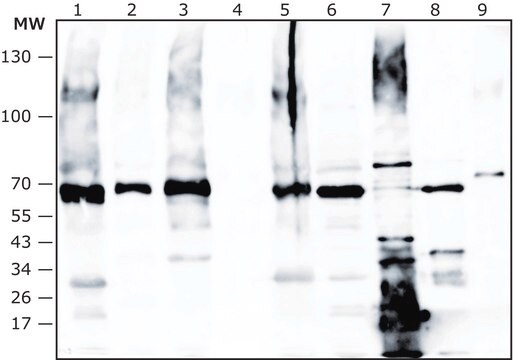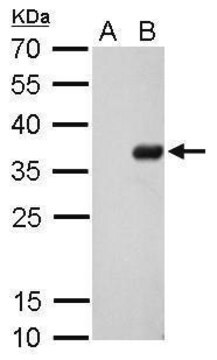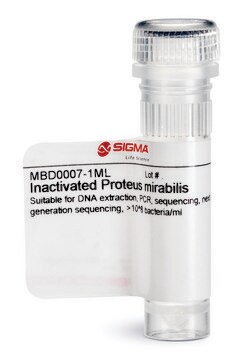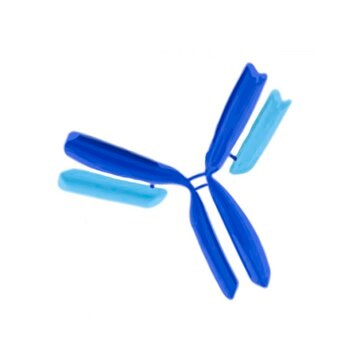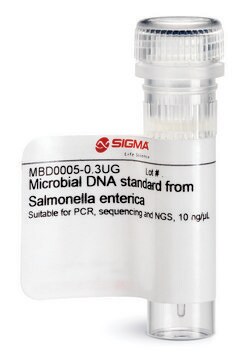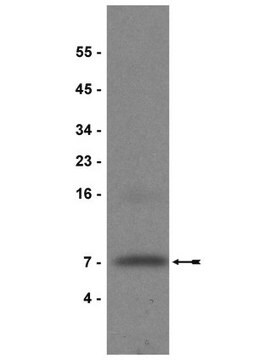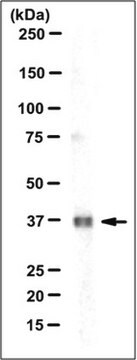SAB4200818
Anti- Proteus mirabilis antibody produced in rabbit
IgG fraction of antiserum
About This Item
Prodotti consigliati
Origine biologica
rabbit
Forma dell’anticorpo
IgG fraction of antiserum
Clone
polyclonal
Descrizione
Research area: Microbiome
Stato
buffered aqueous solution
PM
~70 kDa
Reattività contro le specie
Proteus mirabilis
Confezionamento
antibody small pack of 25 μL
Concentrazione
~1 mg/mL
tecniche
immunoblotting: 1:10,000-1:20,000 using Proteus mirabilis LPS
indirect ELISA: 1:16,000-1:32,000
Condizioni di spedizione
dry ice
Temperatura di conservazione
−20°C
modifica post-traduzionali bersaglio
unmodified
Categorie correlate
Descrizione generale
Immunogeno
Applicazioni
Stato fisico
Altre note
Esclusione di responsabilità
Codice della classe di stoccaggio
10 - Combustible liquids
Classe di pericolosità dell'acqua (WGK)
WGK 1
Punto d’infiammabilità (°F)
Not applicable
Punto d’infiammabilità (°C)
Not applicable
Scegli una delle versioni più recenti:
Certificati d'analisi (COA)
Non trovi la versione di tuo interesse?
Se hai bisogno di una versione specifica, puoi cercare il certificato tramite il numero di lotto.
Possiedi già questo prodotto?
I documenti relativi ai prodotti acquistati recentemente sono disponibili nell’Archivio dei documenti.
Global Trade Item Number
| SKU | GTIN |
|---|---|
| SAB4200818-100UL | |
| SAB4200818-25UL |
Il team dei nostri ricercatori vanta grande esperienza in tutte le aree della ricerca quali Life Science, scienza dei materiali, sintesi chimica, cromatografia, discipline analitiche, ecc..
Contatta l'Assistenza Tecnica.